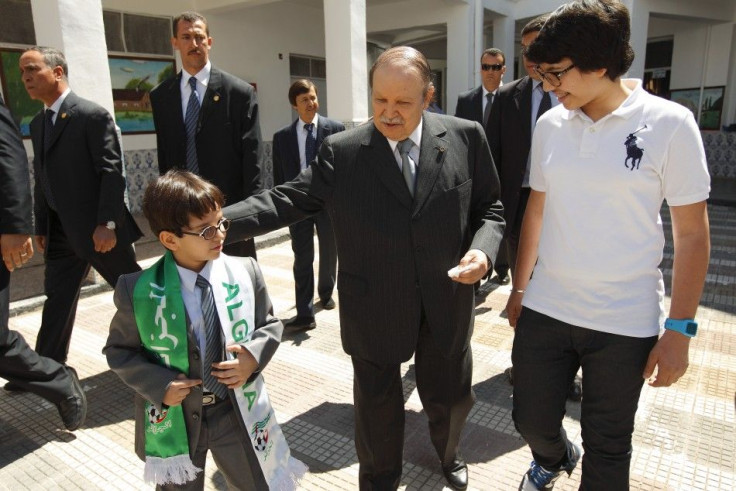Algerian Parliamentary Election Marred By Voter Apathy, Despite Promises Of Fairness, Transparency

Voters in the North African nation of Algeria went to the polls on Thursday to vote in a parliamentary election, in an event that government authorities claim is more free and transparent than ever before and may pave the way to an eventually democracy.
However, indications are that much of the Algerian populace may not even bother to vote, worried that the ruling regime will not relinquish any meaningful power and legitimacy to the parliament.
Algeria, which largely avoided the turmoil of the ‘Arab Spring’ revolutions that swept across North Africa last year (and deposed the governments of neighboring Tunisia, Libya and also Egypt) is nonetheless under pressure to enact reforms. In response, Algeria’s President Abdelaziz Bouteflika allowed the formation of 23 new political p[arties and expanded the size of the Algiers parliament from 389 to 462 seats.
The interior ministry stated that almost 26,000 candidates (including about 7,700 women), representing 44 political parties, will be vying for parliamentary seats, more than the double the number of aspirants in the previous election of 2007.
Under new mandates, political parties must have women filling at least 30 percent of their pools of candidates.
As a show of transparency, the government is also permitting about 500 foreign observers, including 120 from the European Union, to monitor the elections.
BBC reported that the two parties which comprise the ruling coalition, the National Liberation Front (FLN) and the National Democratic Rally (RND); as well a coalition of three Islamist parties, are expected to dominate the elections.
The Islamist group consists of Movement of Society for Peace (MSP), the Islamic Renaissance Movement (Ennahda) and the National Reform Movement.
The presence of Islamists is significant, given that twenty years ago an apparent election victory by the Islamic Salvation Front was annulled by the FLN, leading to a deadly civil war that killed up to 200,000 people during the 1990s. (The FLN has largely dominated Algerian politics since the country gained its independence in 1962).
Now in 2012, polls indicate that voter apathy is widespread, suggesting that the public is skeptical of the government’s promises for democratic reforms.
According to Associated Press, election rallies were sparsely attended, with some candidates heckled by onlookers and even struck with rocks.
Many Algerians are weary of what they view as repressive control of the country by FLN and a parliament that has no real independence from Bouteflika (who won a “landslide” in the last election in 2007).
The public is also concerned about substandard housing, poor infrastructure and high unemployment (20 percent by some estimates, and much higher among youth) and rising poverty, despite the country’s oil reserves.
A 32-year-old Algerian named Marwan Bou Amama explained to AP why he will not vote in the election.
We here in Algeria, we live in a huge coffin. We are the living dead, he said. At my age I should be married, I should have a house. It's a basic right.
The El Watan newspaper conducted a survey pointing to a turnout of 44 percent (in the 2007 parliamentary elections, only 35 percent of eligible voters bothered to cast a vote, an all-time low).
Already, the Rally for Culture and Democracy (RCD) party, a secular party that held 19 seats in the parliament, as well as the Islamic militant group, al-Qaeda in the Islamic Maghreb (AQIM), are calling for a boycott of the election.
However, one of the country’s largest opposition parties, the Socialist Forces Front (FFS), which had previously boycotted several elections, agreed to participate in this year’s poll.
© Copyright IBTimes 2024. All rights reserved.











